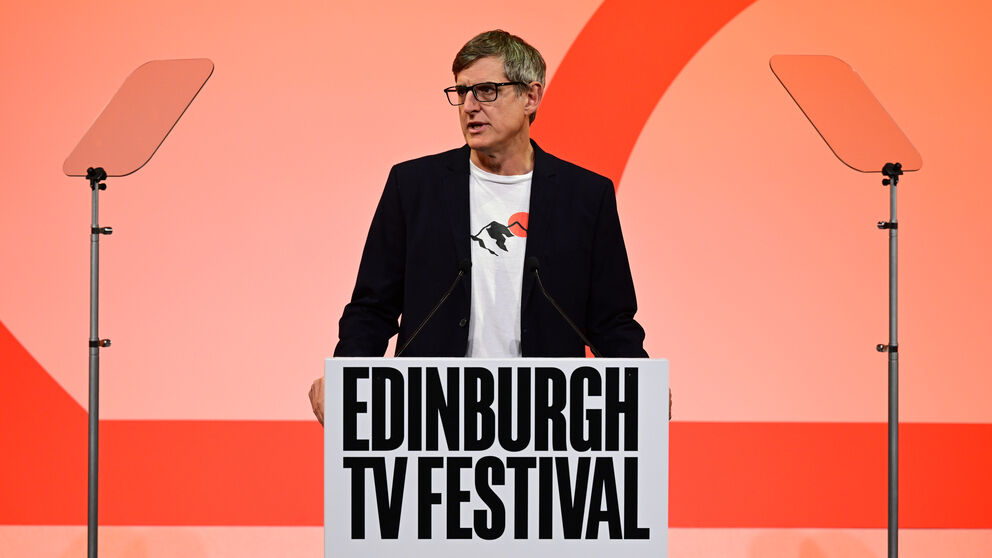There was much to be concerned about at the recent Edinburgh TV Festival, but as Michael Burns reports there were also some bright sparks to cheer the industry.
The Edinburgh TV Festival, when the UK TV production community traditionally decamps en masse from ‘the Smoke’ to a conference centre in ‘Auld Reekie’, is an opportunity for big debates to be aired, as well as news revealed of upcoming shows and formats. With almost a week of sessions and panels, it’s impossible to cover everything in one article, but here’s an overview of announcements and a taste of some of the talks.
Edinburgh TV Festival 2023: New slates
On the horizon are Prime Video UK Original documentary The Fake Sheikh; Virdee, a new six-part detective drama based on AA Dhand’s crime novels and starring Sacha Dhawan; Jenna Coleman will star as a rookie detective in The Jetty, a four-part BBC thriller from writer Cat Jones and producer Firebird Pictures. Drama The Tattooist of Auschwitz (starring Harvey Keitel) and a host of factual shows were announced by Sky; a new reality TV series The Fortune Hotel, produced by Tuesday’s Child for ITV and STV in 2024 will be hosted by Stephen Mangan; while Disney+ showed previews of three-part documentary, Coleen Rooney: The Real Wagatha Story...
You are not signed in
Only registered users can read the rest of this article.

Virtual thinking: Is education keeping pace with industry requirements?
Investments in university-led facilities and studio partnerships throughout the UK have seen virtual production, real-time engines and hybrid pipelines move from the margins into mainstream curricula. But is higher education matching the skills demand from the industry? Michael Burns reports.
Vertical dramas: Market disruptor or passing fancy?
As studios begin to embrace the potential of vertical micro-dramas, should their rise be dismissed as merely a fad or a profound shift in the production, consumption and gender-bias of global storytelling?

ISE 2026: Thriving on an integrated identity
A show that mixes a vast number of different business areas shouldn’t work, but it does because the underlying technology is finally integrated.

Winter Wonderland: All the tech at the Milano Cortina Olympics
Between first-person-view drones, expanded real-time 360° replays, and a massive virtualised production setup, Milano Cortina 2026 is set to be a major step forward in immersive, scalable, and sustainable Olympic broadcasting.

Creator. Experience. Streaming: The new economies of broadcast AV
As brands, corporates, and creators claim their stake in the content landscape, the boundaries between broadcast and professional AV are dissolving. No longer just a convergence, the broadcast AV landscape is now shaped by new economies of creation, experience, and streaming.




